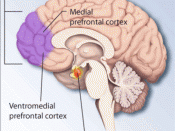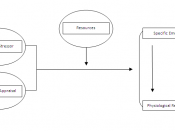Critically evaluate different theoretical approaches to stress (2000 words)
Researchers commonly define stress as '...a negative emotional experience accompanied by predictable biochemical, physiological, cognitive, and behavioural changes that are directed either toward altering the stressful event, or accommodating to its effects' (Taylor, 2003). It is also documented that most definitions of stress now focus on the relationship between the environment and the individual, as differing situations cause stress for different people (Taylor, 2003). Stress has become a much discussed topic between researchers in recent years and there are many theories on the causes and processes involved with stress that should be acknowledged in order to grasp a better understanding of stress and coping.
As previously mentioned, there have been many different theoretical ideas relating to stress and its causes over the years. A wide variety of research places emphasis on different cognitive processes and causes of stress in individuals, such as Selye's General Adaptation Syndrome, the fight or flight theory, the tend and befriend theory and many others (Taylor, 2003).
It is imperative to gain an understanding of these theories in order to gain a better understanding of how researchers believe stress should be dealt with. In relation to stress, it is also important to understand how researchers believe stress can be coped with. Beutler and Moos state that 'Coping is a complex process. It is variously described as a situational and as a trait-like response, as a response to stress and as a disposition to respond to change.' (2003). There are many different theoretical approaches to coping with stress that have been discussed such as; biofeedback, modelling, stress inoculation, cognitive restructuring, rational emotive therapy and multidimensional approaches that combine many differing techniques (Sarafimo, 1998). These theories have both weaknesses and strengths that need to be taken into...



Opinion
Great essay just lack of citation
0 out of 0 people found this comment useful.